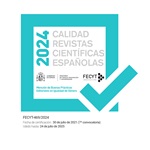La inhabilitación testifical durante el antiguo régimen. (RI §414797)

The witness disqualification during the old regime -
Miguel Pino Abad
Desde el siglo XIII, se constata en el sistema jurídico castellano una pormenorizada regulación de la prueba testifical. A buen seguro, ello vino provocado por los fundados recelos que mostró el legislador de esa época ante la experiencia vivida en tiempos pasados, cuando las circunstancias reinantes forzaron a las autoridades concejiles a conceder un amplio margen de protagonismo a todos los medios probatorios subjetivos y, entre ellos, a los testimonios de individuos ajenos a la relación procesal. Sin embargo, estos indiscutibles inconvenientes no mostraron la fuerza suficiente para desterrar de nuestro sistema procesal a la prueba de testigos, ya que, en muchas ocasiones, se presentaba como el único medio de investigación a que podían acogerse los jueces para resolver los litigios de que conocían. Así pues, los legisladores medievales y modernos debieron contentarse con señalar las condiciones más adecuadas en que debía desplegarse la práctica de la prueba, a efectos de garantizar la máxima veracidad de las declaraciones de los testigos.
I. PLANTEAMIENTO DE LA CUESTIÓN. II. CAUSAS QUE PODÍAN SUSCITAR LA INHABILITACIÓN. 1 Exclusión general de los incapaces físicos y psíquicos. 1.1 Incapaces por razón de la edad. 1.2 Disminuidos psíquicos y físicos. 2 Incapaces por mandato legal. 2.1 Infames. 2.2 Delincuentes. 2.3 Pobres. 2.4 Siervos. III. TRATAMIENTO DE LAS CAUSAS DE INHABILITACIÓN EN LAS OBRAS DE LITERATURA JURÍDICA; IV. LA ADMISIÓN DE INHÁBILES EN JUICIO PARA LA REPRESIÓN DE LOS DELITOS DE TRAICIÓN; V. PROGRESIVA ACEPTACIÓN DEL TESTIMONIO DE INCAPACES POR MANDATO LEGAL EN EL CASTIGO DE OTROS DELITOS SINGULARMENTE GRAVES; VI PARTICULAR POSICIÓN DE LOS JUECES RESPECTO A LA ADMISIÓN DE TESTIGOS INHÁBILES; VII. CESE DE LA INHABILITACIÓN. ESPECIAL MENCIÓN A LOS EXCOMULGADOS.
From the thirteenth century, is found in the Castilian legal system a detailed regulation of the testimony. Surely , this wine caused by the well-founded suspicion that showed the legislature of that time to the experience in the past, when the circumstances forced the concejiles authorities to grant ample prominence to all the subjective forms of evidence and including the testimony of individuals outside the procedural relationship. However, these problems did not show indisputable enough to banish from our judicial system to force the evidence of witnesses, because in many cases, was presented as the only means of research that could benefit the judges to resolve disputes that knew. Thus, the medieval and modern legislators should be content with pointing out the most suitable conditions that had deployed the taking of evidence , in order to ensure maximum accuracy of the statements of witnesses.
I. EXPLANATION OF THE ISSUE. II. CAUSES COULD RAISE THE DISQUALIFICATION. 1 General exclusion of the physically and mentally incapable. 1.1 Unable by reason of age. 1.2 Impaired mental and physical. 2 Unable legally mandated. 2.1 Infames. 2.2 Offenders. 2.3 Poor. 2.4 Servants. III. TREATMENT OF THE CAUSES OF DISQUALIFICATION IN THE WORKS OF LEGAL LITERATURE; IV. ADMISSION IN TRIAL OF UNFIT FOR THE SUPPRESSION OF THE CRIMES OF BETRAYAL; V GRADUAL ACCEPTANCE OF WITNESS IN LEGAL TERMS INCAPABLE BY THE PUNISHMENT OF OTHER SERIOUS CRIMES SINGULARLY; VI. JUDGES PARTICULAR POSITION REGARDING THE ADMISSION OF WITNESSES UNFIT; VII. DISCONTINUED DISQUALIFICATION. SPECIAL MENTION TO EXCOMMUNICATED.
Documento disponible para usuarios registrados.
Para consultar gratuitamente este artículo primero deberá registrarse como usuario.

 DIRECTORA
DIRECTORA